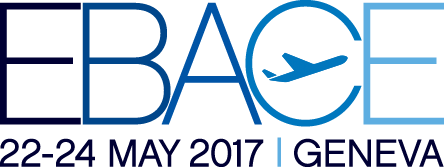For Passenger and Baggage Screening, European Aviation Seeks a Risk-Based Approach
23 May 2017
It’s the same in every country, including the United States. Regulators write aviation rules for airlines, and business aircraft operators are often an afterthought. In Europe, complying with security regulations is complicated by different applications across countries.
“The problem is, they write the regulations in Brussels. They’re simple. Then each country derogates from the basic standard in different ways,” said Sean Rafferty, managing director of Universal Aviation UK, in a security session at the 2017 European Business Aviation Convention & Exhibition (EBACE2017). “Then each airport implements the country rules in specific ways.”

The country-by-country and airport-by-airport variation has increased since December 2016, when the European Commission allowed member states to derogate from the basic standards for aviation security screening and adopt alternative security measures.
However, the revisions (EC Regulation 2016/2096) do not define what “alternative security measures” are. Whatever those measures might be, the regulation allows many business aviation operators to be subject to them instead of common screening as defined in the basic standard.
States and airports can adopt alternative security measures for flights by aircraft with a maximum takeoff weight of less than 45,500 kilograms, if the aircraft is:
- Flown by company that owns it; or
- Chartered by a company for carriage of its own staff.
“Because we are in business aviation, we are dealing with a different kind of risk, very low risk,” said Patricia Davis, head of compliance and safety for TAG Aviation UK. “That risk-based approach should be reflected in how screening is implemented.”
PNR Transmission and ‘Triple A’ Baggage Requirements
The panelists also discussed EU requirements for air carriers to “account and authorize” baggage (often called ‘Triple A’ requirements), and an April 2016 European Parliament directive for air carriers to collect and transmit passenger name record (PNR) data.
The directive requires air carries to transmit all data they’ve collected on passengers on flights from non-EU countries to each member’s authorities to help fight terrorism and crime. However, “the directive doesn’t specify what an ‘air carrier’ is,” said Terry Yeomans, program director for IS-BAH at the International Business Aviation Council.
“Also, the directive requires you to transmit all data you’ve collected on your passengers, which could include their credit card info,” added Yeomans. “And it requires PNR data to be transmitted 24-48 hour before the scheduled time of departure. Of course, in business aviation, we don’t have a scheduled time of departure.”

